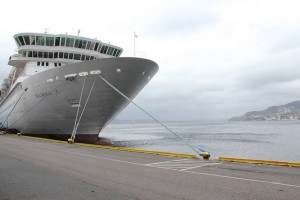 Throughout my life, I have heard the age-old saying that “experience is the best teacher”. Through my coaching of leaders and my own life experience, though, I have come to believe that this popular adage is not true. So, for my work and in own my life, I have adapted it. I say that experience is the best teacher only if reflection sits alongside it.
Throughout my life, I have heard the age-old saying that “experience is the best teacher”. Through my coaching of leaders and my own life experience, though, I have come to believe that this popular adage is not true. So, for my work and in own my life, I have adapted it. I say that experience is the best teacher only if reflection sits alongside it.
Learning is not about doing; learning is about reflecting on doing. In order to develop and grow, people must learn to process their experience in ways that allow them to understand its significance and its lessons. Otherwise, experience is merely experience, not yet learning. Reflecting on experience—and not experience itself—is the best teacher.
Reflection is an important activity for everyone who would like to influence their world. In my ongoing efforts to uncover what makes leaders effective, I have seen again and again the critical role that reflection plays. People of influence, at all levels and in any type of group or organization, tend to be individuals who process and reprocess their experience and learning. They continuously revisit their life lessons, and use these lessons to teach and inspire others.
Whenever I speak about one of my favorite topics, “the myths and realities of leadership”, I touch upon the misconception that outstanding leaders have some sort of remarkable past, that they are somehow shaped by extraordinary life events.
Much of society clings to the myth that those who emerge as outstanding leaders in any field have some exceptional trial or experience, a crucible in their life journey that has somehow forged them, transformed them, and prepared them for an important leadership role. In truth, it is not so much that something in their past has transformed them; it is more that they have transformed themselves, by reflecting on their lives and their experience.
My study of leaders and my coaching experience have led me to believe that great leaders do not have extraordinary pasts. What they do have is an extraordinary ability to learn, and to use the lessons of their lives.
Not long ago, I searched for information about Norwegian billionaire Fred Olsen, the owner of Timex. He is also a successful watch designer, world-class sailor and oil industry pioneer. In a recent interview with Fortune, Olsen described some of the formative experiences of his younger years, and the knowledge he gleaned from them.
A great-grandson of the founder of a shipping empire, Olsen could have taken the path of the privileged. His father, Thomas, had attended Cambridge, and he went on to run the family business quite well, without ever having worked on a ship. Young Fred, on the other hand, decided to chart his own course and to learn his own way.
Rather than attend university, Olsen boarded the fruit ship Bruno in January 1949, a few days after his 20th birthday. For more than two years, he labored on the Bruno and other vessels, in lowly positions such as deck hand or “greaser”, a term used to describe the people who fix the engines that generate electricity.
During these years, Olsen learned about shipping cognac from Bordeaux to the Mediterranean, or sending bananas from the Canary Islands to Scandinavia. He came to understand the boats’ mechanical systems in great detail, observed how the various ships’ leaders managed their personnel, and learned how to organize all types of cargo. He would later comment: “It was better than an MBA, better than an engineering degree. No diploma could come close to that education.”
Of course, I have every reason to believe Olsen when he states that no amount of formal education could compare to the knowledge he acquired at sea. The more crucial point, however, is that the future magnate used the time well by reflecting on all he saw and then turning his experiences into meaningful and usable lessons that would serve him throughout his career.
What is remarkable in Olsen’s journey is not the experience of working on the ships. Every seaman who does a variety of menial jobs on seafaring vessels gains experience. However, most will not come away with the knowledge that Olsen was able to glean. His reflection was a necessary part of the equation, the part that allowed him to learn and use the important life lessons.
Image: Flickr-user Gary Bembridge
